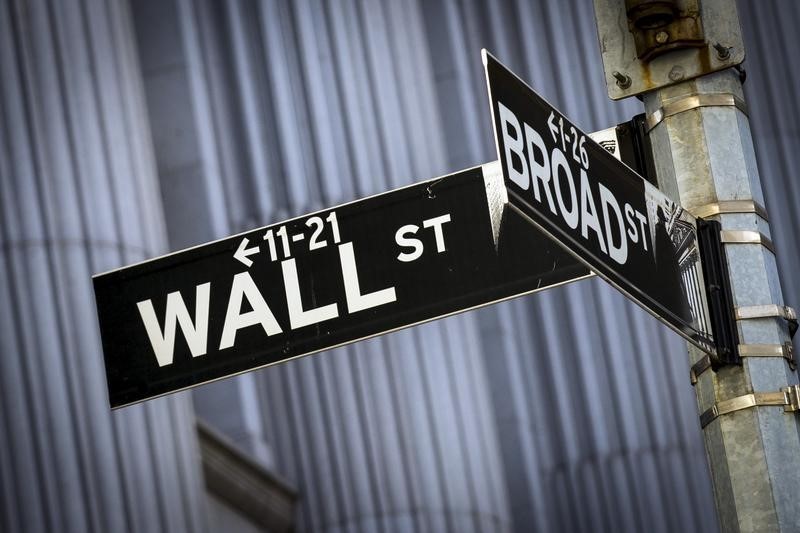Wall St futures flat amid US-China trade jitters; bank earnings in focus
Investing.com-- U.S. stock index futures drifted higher in holiday-thinned trade on Monday evening, with investors remaining on edge over the prospect of more trade tariffs and interest rates remaining high for longer.
Trading volumes were limited on account of a U.S. market holiday, which also made for few fresh cues on Wall Street. Focus remained squarely on President Donald Trump’s plans for more trade tariffs, as well as the path of interest rates following sticky inflation prints from last week.
S&P 500 Futures rose 0.2% to 6,141.0 points, while Nasdaq 100 Futures rose 0.1% to 22,220.0 points by 18:55 ET (23:55 GMT). Dow Jones Futures rose 0.2% to 44,712.0 points.
Trump reiterates plans for reciprocal tariffs
Trump on Monday reiterated his plans for imposing reciprocal tariffs against countries trading with the U.S., stating that the tariffs will match any duties imposed on U.S. exports.
Trump said in a social media post that he will consider countries that use a value-added tax (VAT) system the same as a tariff. Importers in Europe and Asia are likely to be impacted the most by this consideration.
The U.S. President- who had recently imposed 25% tariffs on all steel and aluminum imports- said the reciprocal tariffs were in the interest of fairness in trade relations. Trump had earlier also slapped China with 10% tariffs.
But Trump had signaled recently that the reciprocal duties will come into effect only by April, offering markets some near-term relief. Wall Street rose last week following Trump’s move, with the S&P 500 coming in sight of a record high.
Still, Trump’s tariff plans threaten to destabilize global trade, and could also underpin U.S. inflation, given that any trade tariffs will be paid chiefly by local importers.
The S&P 500 ended flat at 6,114.63 points on Friday, while the NASDAQ Composite rose 0.4% to 20,026.77 points. The Dow Jones Industrial Average fell 0.4% to 44,546.08 points.
Fed’s Waller downplays inflationary risks of Trump tariffs
Federal Reserve Governor Christopher Waller said on Tuesday that Trump’s tariffs were expected to have only a modest impact on inflation, and that the central bank should look past trade jitters when considering policy.
But Waller also said that interest rates should remain unchanged in the near-term, citing concerns over sticky inflation and signs of a strong labor market.
Waller noted that last week’s inflation readings pointed to fewer signs of easing inflation, although progress had still been made over the past year.
The Fed kept rates unchanged in January, and is widely expected to keep rates steady in the near-term, after a total of 1% in rate cuts through 2024.
